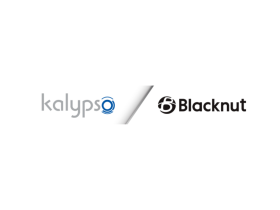The fintech landscape continues to heat up as established players refine their offerings and emerging platforms forge strategic alliances. Today’s briefing dives into five pivotal stories—from Melio’s headline-grabbing acquisition talks to transformative industry research from the World Economic Forum—all underscored by an op-ed lens that teases out what these developments mean for innovators, regulators, and end-users alike.
1. Melio on the Cusp of a Landmark Acquisition
Story: Israeli accounts-payable fintech Melio is reportedly in advanced negotiations to be acquired by New Zealand-listed Xero for around $2 billion, a deal that would mark one of 2025’s largest fintech exits. Melio, co-founded by Matan Bar and Ilan Atias, crossed $100 million in ARR last year and counts Fiserv, Shopify, and Capital One among its strategic backers.
Analysis: This looming exit highlights the growing appetite among established platform providers for embedded B2B payment capabilities. Xero’s $20 billion market cap underscores how acquisitive incumbents are willing to pay a premium for bolt-on fintech expertise—despite Melio’s recent valuation reset in its 2024 Series E round. Integration risks remain, but the synergy between Xero’s accounting software and Melio’s payables rails could drive stickier customer relationships.
Source: Calcalist CTech
2. WEF’s Second Edition Fintech Report: From Expansion to Sustainability
Story: Published on June 25, the World Economic Forum’s “Future of Global Fintech: From Rapid Expansion to Sustainable Growth” report draws on a survey of 240 leading fintechs to map four critical trends:
-
Normalization of growth—post-pandemic momentum is stabilizing.
-
Regulatory evolution—jurisdictions are ramping up oversight without stifling innovation.
-
Tech convergence—AI and blockchain move toward enterprise maturity.
-
Inclusion imperatives—fintechs must deliver measurable social impact.
Analysis: The shift from breakneck expansion to measured, sustainable growth suggests fintechs must now prove path-to-profit alongside user adoption curves. Regulatory bodies are embracing sandbox models, but firms will need robust compliance frameworks to win trust. AI-driven personalization and tokenization initiatives promise differentiated offerings—yet managing systemic risk and ensuring equitable access will determine long-term viability.
Source: World Economic Forum
3. Upgrade’s Neobank Review: Yield vs. UX Trade-Offs
Story: A recent Yahoo Finance review spotlights Upgrade’s all-digital banking suite—offering high-yield savings, no-fee checking, and fixed-rate credit lines—while critiquing its mobile app’s limited budgeting tools and occasional customer-service lapses.
Analysis: Upgrade’s competitive APYs and absence of hidden fees address consumer pain points in legacy retail banking. Yet, user experience friction—particularly around in-app navigation and real-time support—could dampen retention. As neobanks proliferate, seamless digital journeys and integrated financial-health features will be table stakes. Upgrade’s next frontier may hinge on third-party API partnerships to augment its native platform.
Source: Yahoo Finance
4. 10x Banking & Constantinople Forge APAC Powerhouse
Story: On June 25, cloud-native core platform 10x Banking announced a strategic partnership with Australian banking-software provider Constantinople to deliver AI-driven core systems across APAC, promising up to an 80% reduction in cost-to-income ratios. Early clients include Great Southern Bank, while Constantinople’s recent A$50 million Series A underpins its rapid growth.
Analysis: The collab underscores a broader industry pivot toward composable banking architectures: best-in-class core engines married with specialized operations stacks. AI integration across fraud detection, credit decisioning, and personalized product delivery will be key differentiators. Yet legacy-system migrations pose execution challenges. Banks that can orchestrate these modern partnerships stand to leapfrog incumbents weighed down by siloed IT estates.
Source: 10x Banking
5. MENA Banks at the Crossroads: Innovation Meets Regulation
Story: “Balancing Innovation and Regulation: A Path Forward for the Banking and Financial Sector in MENA,” published today by International Banker, argues that fintech-led inclusion, operational efficiency, and competitive dynamics depend on harmonized regulatory frameworks that promote open APIs while safeguarding consumer protection.
Analysis: MENA’s fintech ecosystem is nascent but growing fast, with digital-wallet usage and SME-lending platforms gaining traction. Central banks in the UAE, Bahrain, and Saudi Arabia have rolled out open-banking mandates, yet inconsistent enforcement threatens to fragment markets. The article calls for a regional fintech passport, unified data-sharing standards, and tiered licensing that differentiates between low-risk e-money issuers and high-impact credit providers. Bridging the innovation-regulation divide will be essential to prevent capital flight and ensure sustainable sector expansion.
Source: International Banker
Conclusion & Outlook
Today’s developments reveal a fintech industry maturing on multiple fronts: consolidation via marquee exits; sustainability as a strategic imperative; user-centric feature wars among neobanks; strategic alliances to tackle complex digital transformations; and region-specific regulatory roadmaps. As we close the mid-year mark, watch for M&A ripples from Melio’s deal, bench-tests of WEF’s sustainability metrics, and the first banks in APAC and MENA to go live on next-gen core stacks. The pulse of fintech is strong—but its true test lies in achieving scale without sacrificing compliance or customer trust.















Got a Questions?
Find us on Socials or Contact us and we’ll get back to you as soon as possible.